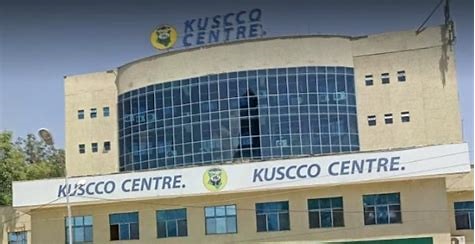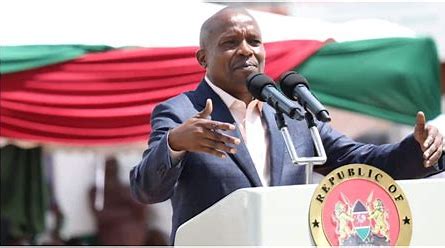KUSCCO Scandal: Ksh 12 Billion Financial Irregularities Exposed in Forensic Report

On December 13, 2024, during an affiliate meeting held at the Kenya Union of Savings and Credit Cooperatives (KUSCCO), a forensic report uncovered shocking financial irregularities within the organization, sparking concerns over the stability of the cooperative sector in Kenya. The report, presented to an audience that included Cooperatives Cabinet Secretary Wycliffe Oparanya, revealed a staggering Ksh 12 billion in financial losses tied to widespread mismanagement, fraudulent investments, and the siphoning of funds.
The Scope of the Scandal
The forensic audit exposed severe financial mismanagement, including missing funds, unauthorized loans, and dubious investments that had plagued KUSCCO. The national body, which oversees the operations of Savings and Credit Cooperatives (SACCOs) in Kenya, had seen billions of shillings misappropriated through fraudulent activities. Senior officials at KUSCCO were implicated, with findings suggesting collusion to siphon funds via shell companies and unapproved projects.
The report also highlighted the severe risk posed to the savings of SACCO members, with billions of shillings potentially evaporating due to these irregularities. In one particularly alarming case, Ksh 6 billion was illegally withdrawn from the union, violating financial regulations.
Government’s Response and Reforms
In response to the damning report, Cabinet Secretary Wycliffe Oparanya reassured the public that the government was committed to addressing the crisis. He vowed to take decisive action to restore order within KUSCCO, which has been mired in scandal. Oparanya emphasized that the issue was rooted in bad governance, stating, “If you cannot deal with it legally, you deal with it politically,” signaling the government’s readiness to take both legal and political measures to resolve the situation.
Oparanya also reiterated the government’s pledge to implement wide-reaching reforms in the cooperative sector. This includes restructuring KUSCCO’s management by introducing independent professionals with no prior ties to the union. Additionally, immediate liquidation has been recommended for KUSCCO to prevent further losses and protect the remaining assets.
Auditors’ Findings and Recommendations
The auditors behind the forensic report laid bare the depth of the rot within KUSCCO. According to one of the auditors, “Our work provided evidence that supported the fact that there were widespread cases of mismanagement, asset misappropriation, and even, in some cases, diversion of the resources of the organization.”
The audit's recommendations were clear: KUSCCO must undergo immediate liquidation to salvage its remaining assets, and there must be a restructuring of its management to restore credibility. Furthermore, a repayment plan for affected members was proposed to rebuild trust in the cooperative system, which has been severely shaken by the scandal.
Implications for Kenya’s Cooperative Sector
The revelations have raised alarm among the millions of Kenyans who rely on SACCOs for their savings and financial security. The scale of the scandal threatens to destabilize the cooperative sector, which plays a crucial role in Kenya’s financial landscape. As the government seeks to address the situation, the focus remains on ensuring that the affected members are compensated and that similar financial misconduct is prevented in the future.
KUSCCO's crisis underscores the need for greater transparency, accountability, and oversight in the management of cooperative organizations. With reforms underway, many hope that the government’s intervention will not only address the current crisis but also pave the way for a stronger, more reliable cooperative sector in Kenya.
Looking Ahead
As KUSCCO battles to recover from this scandal, all eyes are on the government to take swift and effective action. With the trust of thousands of SACCO members at stake, it is critical that the necessary reforms are implemented to ensure the long-term stability and growth of Kenya’s cooperative sector.
- Griffith University Australia Vice Chancellors Academic Achievement Scholarship 2025
- Posted Datetime: Jan 04, 2025 08:05 PM
- Audencia Business School Scholarship – Partial Funding
- Posted Datetime: Jan 04, 2025 07:59 PM
- food products sales representative
- Posted Datetime: Jan 04, 2025 07:55 PM
- accounting technician
- Posted Datetime: Jan 04, 2025 07:50 PM
- Deputy President Kithure Kindiki Addresses Rift Rumors, Explains Absence as Holiday Break
- Posted Datetime: Jan 04, 2025 07:37 PM
- Bodies of Two Missing Men Found in Nairobi and Kiambu Counties Amid Ongoing Investigations
- Posted Datetime: Jan 04, 2025 07:29 PM
- KUSCCO Scandal: Ksh 12 Billion Financial Irregularities Exposed in Forensic Report
- Posted Datetime: Dec 19, 2024 08:23 PM
- President William Ruto Unveils Cabinet Reshuffle to Drive Economic Transformation
- Posted Datetime: Dec 19, 2024 08:10 PM
- Office manager
- Posted Datetime: Dec 19, 2024 07:58 PM
- American University Emerging Global Leader Scholarship
- Posted Datetime: Dec 19, 2024 07:53 PM
- Fulbright Foreign Student Program in the USA
- Posted Datetime: Dec 19, 2024 07:49 PM
- President Ruto Makes Fresh Cabinet Nominations, Bringing Back Prominent Politicians to Key Positions
- Posted Datetime: Dec 19, 2024 07:31 PM
- Fans React as Wadagliz’s *Anguka Nayo* Music Video is Removed from YouTube
- Posted Datetime: Dec 15, 2024 07:36 AM
- Explaining the TV Blackout for Chelsea vs. Brentford in the UK
- Posted Datetime: Dec 15, 2024 07:24 AM
- Power Struggle Erupts in Mt Kenya as Gachagua Faces Political Fallout
- Posted Datetime: Dec 15, 2024 06:32 AM







No comments yet.